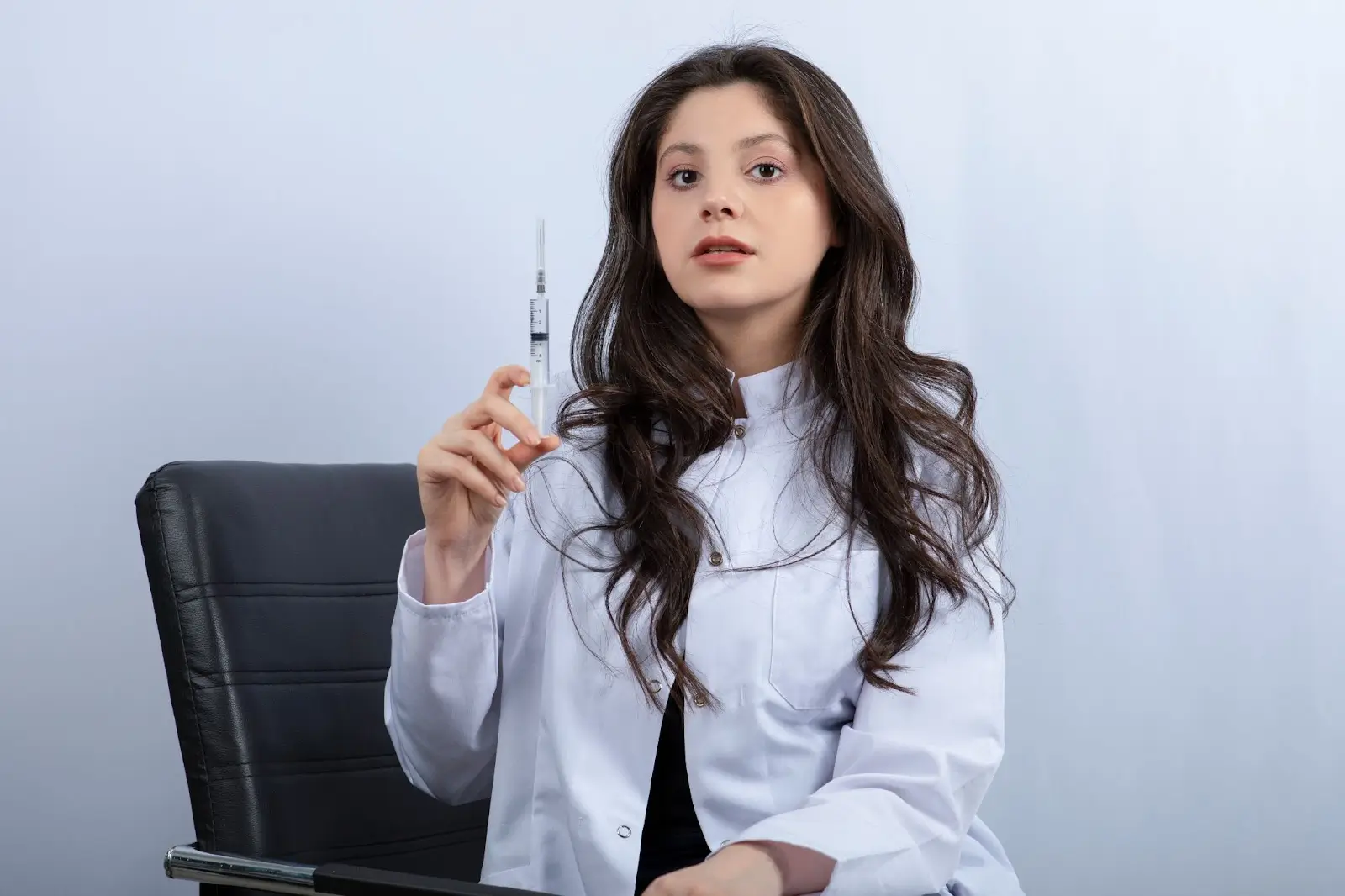
Biosimilars are designed to closely mirror the original biologic medications, offering the same safety and efficacy as their reference products, but at a significantly lower cost (up to 30% less). Despite this cost advantage, the adoption of infliximab biosimilars in the U.S. has been slow, with biosimilars capturing only about 10% of the total infliximab market by 2018.
Among the most prominent infliximab biosimilars is Inflectra (infliximab-dyyb), which is the first approved biosimilar to Remicade (the reference product). Both are used to treat chronic inflammatory conditions like rheumatoid arthritis and Crohn’s disease, but it’s important to understand how Inflectra compares to Remicade in terms of clinical equivalence, cost differences, regulatory status, and real-world effectiveness.
In this article, we’ll take a closer look at Inflectra vs Remicade, exploring key factors to help patients and healthcare providers assess these treatment options and decide which is the best fit for their needs.
Key Takeaways
- Inflectra is a biosimilar to Remicade that closely matches the molecular structure, target binding, and clinical outcomes of the reference biologic.
- Regulatory agencies like the FDA require biosimilars to demonstrate high similarity in terms of purity, potency, and safety.
- Inflectra underwent extensive pharmacokinetic and pharmacodynamic studies to show that its absorption, distribution, metabolism, and excretion closely mirror those of Remicade, ensuring patients receive the same therapeutic benefits.
- Clinical trials have demonstrated that Inflectra provides comparable efficacy and safety to Remicade.
- Studies show no significant differences in treatment outcomes for conditions like rheumatoid arthritis, Crohn’s disease, and ankylosing spondylitis.
- While Inflectra is FDA-approved as a biosimilar to Remicade, it is not considered interchangeable at the pharmacy level. However, supervised switching between the two has shown comparable outcomes with no increase in adverse events.
- Inflectra offers a cost-effective alternative to Remicade, typically priced 10–30% lower. It’s an attractive option for both patients and healthcare systems looking to reduce treatment costs while maintaining therapeutic effectiveness.
- Patient education and monitoring for immunogenicity and disease response are essential when switching between Remicade and Inflectra to ensure safe and successful treatment outcomes.
About: Doctor Medica is your trusted supplier of top-quality dermal fillers, viscosupplements, and more for your medical practice. We offer genuine products from leading brands at the lowest prices in the market. If you’re looking to order Remicade online for your practice, contact Doctor Medica today.
What Makes Inflectra a Biosimilar to Remicade? Regulatory Standards Explained

Inflectra qualifies as a biosimilar to Remicade because it closely mirrors the molecular structure, target binding, and clinical outcomes of the reference biologic. To meet regulatory standards, biosimilars like Inflectra are required to demonstrate high similarity to the originator product, ensuring there are no significant differences in purity, potency, or safety.
Key Testing and Comparison
- Molecular Comparability: Inflectra underwent rigorous analytical testing to ensure that key aspects, such as protein structure, glycosylation patterns, and binding affinities, were within an acceptable range compared to Remicade.
- Pharmacokinetic and Pharmacodynamic Studies: Inflectra had to show no clinically meaningful differences in function. Extensive studies examined how the drug is absorbed, distributed, metabolized, and excreted. These studies demonstrated that Inflectra and Remicade behave in a nearly identical way in the body, ensuring that patients receive the same therapeutic benefit.
- Immunogenicity Testing: Another crucial factor was the assessment of immunogenicity, ensuring that Inflectra does not trigger harmful antibodies when patients switch from Remicade or initiate treatment with Inflectra.
Clinical Trials and Approval
The approval process for Inflectra involved clinical trials aimed at treating inflammatory diseases like rheumatoid arthritis and Crohn’s disease. The outcomes of these trials confirmed equivalent efficacy and safety to Remicade, allowing regulators to extrapolate Inflectra’s use across all indications for Remicade.
- Streamlined Approval Process: The regulatory approach avoided redundant trials, maintaining high standards while expediting approval.
- Interchangeability: As a result of these comprehensive evaluations, Inflectra is recognized as interchangeable in many healthcare settings, providing a cost-effective alternative with comparable therapeutic outcomes.
Clinical Data on Inflectra vs Remicade: Efficacy and Safety Profiles

To understand how Inflectra compares to Remicade, it’s important to first ask, “What is Remicade?”. Remicade is a biologic medication used to treat autoimmune diseases like rheumatoid arthritis and Crohn’s disease. It works by targeting tumor necrosis factor-alpha (TNF-α), a protein involved in inflammation, helping to reduce symptoms like pain, swelling, and gastrointestinal discomfort.
Inflectra has been extensively studied in clinical trials, and the results show that it performs similarly to Remicade in both efficacy and safety profiles. For example, in a head-to-head trial for Crohn’s disease, clinical response rates were nearly identical at week 6: 71.4% for Inflectra versus 75.2% for Remicade, demonstrating non-inferiority.
Rheumatologic Extension Data
- Rheumatoid Arthritis: Long-term extension studies showed that Inflectra maintained comparable disease suppression and improvements in physical function, with no increase in adverse events.
- Ankylosing Spondylitis: Patients who switched from Remicade to Inflectra maintained clinical response with no significant changes in safety, immunogenicity, or drug levels.
- Psoriatic Arthritis: Inflectra has demonstrated consistent improvements in both skin and joint symptoms, reinforcing the stability of biosimilars in treating multi-system diseases. Approval in PsA was granted through extrapolation from RA/AS studies, meaning the data from those conditions were used to predict its effectiveness in PsA.
Across multiple conditions, the evidence continues to support Inflectra’s equivalence to Remicade, reassuring clinicians that switching to biosimilars like Inflectra does not compromise clinical outcomes. This consistency in real-world applications further strengthens the case for using biosimilars as safe and effective treatment options.
Switching from Remicade to Inflectra: Interchangeability and Patient Impact
Switching from an originator biologic like Remicade to a biosimilar like Inflectra can raise concerns regarding safety, efficacy, and the immune response. While the FDA has approved Inflectra as a biosimilar to Remicade, it is not considered interchangeable at the pharmacy level. This means that patients cannot automatically switch between the two medications without the oversight of a healthcare provider.
Clinical studies and real-world evidence, such as the PLANETRA and PLANETAS trials, have shown that supervised switching between Remicade and Inflectra results in comparable outcomes. These studies demonstrated that patients with rheumatoid arthritis and ankylosing spondylitis did not experience any significant loss of disease control or an increase in adverse events when transitioned from Remicade to Inflectra.
| Feature | Remicade (Originator) | Inflectra (Biosimilar) | Renflexis (Biosimilar) |
| FDA Status | Biologic, originator | FDA-approved biosimilar | FDA-approved biosimilar |
| Pharmacy-Level Interchangeable? | No | No | No |
| Switching Safety (per studies) | N/A | Comparable efficacy & safety in PLANETRA | Similar outcomes in multiple trials |
| Immunogenicity Risk | Moderate | Comparable antibody rates post-switch | Similar immunogenic profile |
| Therapeutic Response | Sustained with long-term use | Maintained after the switch | Maintained after the switch |
| Common Use | RA, Crohn’s, UC, etc. | Same indications as Remicade | Same indications as Remicade |
Switching from Remicade to Inflectra under clinical supervision has shown to preserve disease control while minimizing the risk of increased side effects or immune complications. This is encouraging news for healthcare systems, as it supports the cost-saving benefits of using biosimilars while maintaining high-quality patient care.
Cost and Market Factors: Inflectra vs Remicade in Practice
One of the key benefits of Inflectra is its affordable price, typically 10–30% less than Remicade. This significant cost difference can greatly improve patient access to treatment, especially in publicly funded health systems or for patients who pay out-of-pocket.
Even though Inflectra costs less, it must meet the same biosimilarity standards as Remicade, ensuring that patients receive the same therapeutic outcomes and mechanism of action. This ensures trust in biosimilars while making them a viable option for cost-conscious patients.
Formulary decisions, insurance coverage, and regional guidelines often influence the choice between Inflectra and Remicade. In many healthcare systems, they prioritize Inflectra as a first-line option due to its cost-efficiency and proven clinical equivalence.
When evaluating Inflectra vs Remicade, the value extends beyond just the economics. Biosimilar adoption supports broader treatment equity. However, both products require patient education and monitoring for immunogenicity and disease response to ensure long-term success.
Conclusion
Inflectra offers a safe, effective, and affordable alternative to Remicade. For patients already receiving infliximab therapy or those starting treatment, Inflectra provides a cost-effective solution without compromising therapeutic outcomes. When used appropriately, biosimilars like Inflectra offer a path to better accessibility for patients, without sacrificing efficacy.
The decision to switch to Inflectra should take into account insurance coverage, patient preferences, and the healthcare provider’s comfort with switching protocols. With proper management and close monitoring, Inflectra can be a reliable option for maintaining disease control with added economic benefit.
FAQs
1. Is Inflectra as effective as Remicade?
Yes. Clinical studies in Crohn’s, RA, and AS show equivalent efficacy and safety through at least 54 weeks.
2. Can I switch from Remicade to Inflectra without issues?
Yes, as long as you do it under physician oversight. Research indicates no increased risk of loss of response or side effects after the switch.
3. Why isn’t Inflectra interchangeable at the pharmacy?
The FDA has approved it as a biosimilar, not an interchangeable biologic. Switching requires provider oversight, but studies support its safe use.
4. Will infusion protocols change with Inflectra?
No. Inflectra uses the exact dosing, infusion schedule, and administration rules as Remicade, including monitoring for infusion reactions.
References
Kaniewska M, Moniuszko A, Rydzewska G. The efficacy and safety of the biosimilar product (Inflectra®) compared to the reference drug (Remicade®) in rescue therapy in adult patients with ulcerative colitis. Prz Gastroenterol. 2017;12(3):169-174. doi:10.5114/pg.2017.70468
Bhat S, Altajar S, Shankar D, et al. Process and clinical outcomes of a biosimilar adoption program with infliximab-dyyb. J Manag Care Spec Pharm. 2020;26(4):410–416. doi:10.18553/jmcp.2020.26.4.410. https://www.jmcp.org/doi/pdf/10.18553/jmcp.2020.26.4.410
Related Articles
Joanna Carr
Lumigan Side Effects – What to Expect and How to Manage Them
Understand the side effects of Lumigan and how to manage them. Learn about common and rare side effects, tips for minimizing discomfort, and when to s...
Joanna Carr
Sculptra vs Radiesse – Comparing Fillers
Sculptra and Radiesse are both injectable fillers, but they work differently. Sculptra stimulates gradual collagen production for long-lasting, natura...
Joanna Carr
Dysport Time To Work: Patient Expectations And Treatment Outcomes
Empowering patients through informed decision-making is crucial for successful Dysport treatment.


